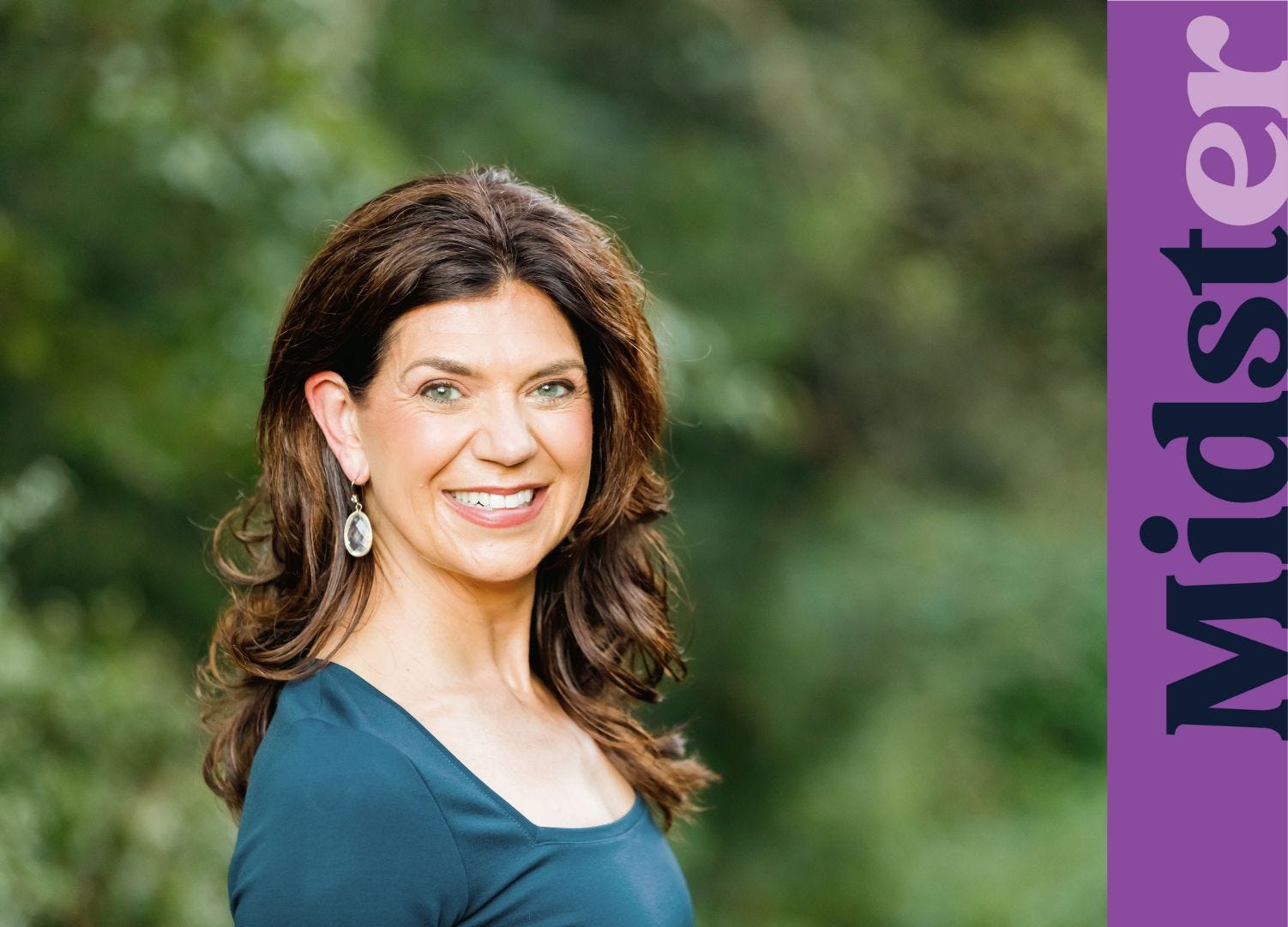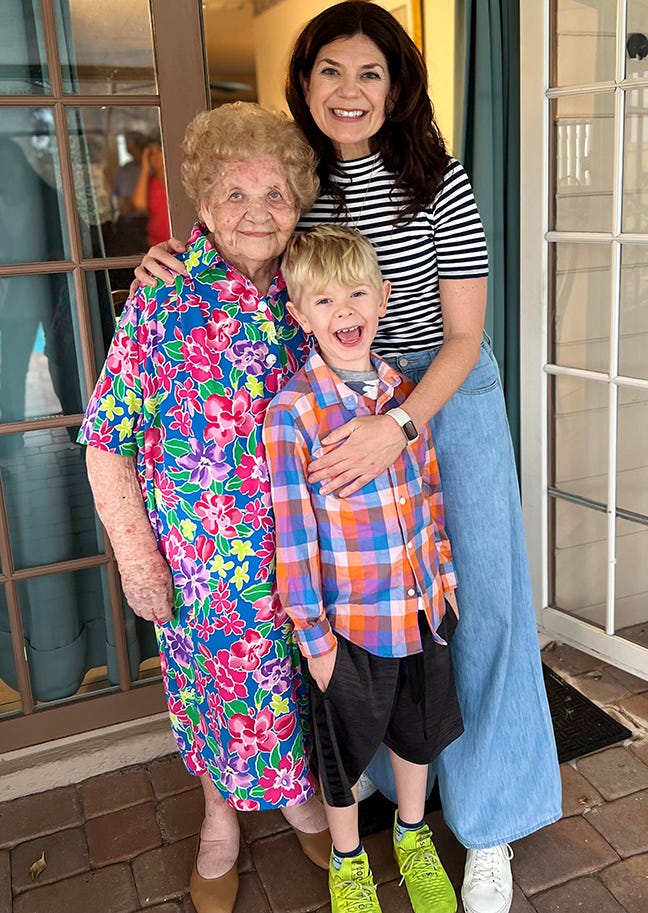"Is my relationship screwed because I'm Gen X?"
Our relationships, ourselves: A couples and sex therapist weighs in on the “middle child” generation’s unique relationship challenges
Is it me or is my Gen X-ness wreaking havoc on my relationship?
By Midster Kate Engler, a couples and sex therapist
In my work as a licensed couples and sex therapist, I keep hitting the same snag with Gen X couples: They’ve been navigating their relationships in a world where all the rules changed, but no one shared the new rule book.
As the middle child of generations, this isn’t a huge surprise. We Gen Xers came of age at a time of extraordinary social and economic change. We were raised in the ‘70s and ‘80s, which was a time of dramatic shifts in gender equity (e.g., greater access to higher education, The Pill, and sexual harassment protections). During those eras, we watched our parents suffer through multiple economic crises. Our mothers entered the full-time workforce at unprecedented rates and our fathers faced a new reality in which they could not reliably be the sole breadwinner.
Frankly, I deeply relate to my clients.
I own a private practice outside of Chicago where I work primarily with Gen X couples and women. I hold master’s degrees in family counseling and secondary education, and extensive training in relationship therapy and have trained with some of the most well-known and respected experts in the world, such as Esther Perel and Terry Real.
Essentially, my livelihood is based on helping couples increase their understanding of each other. However, for years I struggled to understand my own marital frustrations and getting my husband to hear me felt impossible. Through 10 years of research and clinical work, I came to understand that my experience was not uncommon, and that for Gen Xers, the literal timing of our birth was wreaking havoc on our intimate relationships.
Old relationship paths are gone, but where are the new ones?
Our parents divorced at the highest rates the country has ever seen; even if they didn’t, the fear that they might was ever-present. An increasing prevalence of only one parent in the house at any time, and a dearth of childcare, ensured the “latchkey” approach stayed the norm throughout our childhood. Some say this made us the least supervised generation to date. Regardless of whether that is true, for most of us, finding our way through the world was a highly independent endeavor.
As adults, we entered a work culture that was resistant to changing its “total commitment” model of employment, which heavily depended on having an at-home partner to handle all domestic duties. At the same time, the professional world was quickly adapting to booming technological advances. The internet and smartphones made work possible anywhere and gave employers 24-7 access to employees. Rather than making work more efficient (as was promised), tech exacerbated the expectation of non-stop engagement if one wanted career advancement or, often, just to stay in place.
Through it all, Gen Xers were unwitting pioneers of uncharted territory. We worked hard to actualize the social and legislative changes that occurred in our youth, but quickly realized our path was more treadmill than escalator — lots of hustle, but no real movement.
NYU professor and expert on work, gender and family life, Dr. Kathleen Gerson, recognized what a revolutionary time Gen Xers grew up in. In her book, The Unfinished Revolution, she noted about our generation: “Now making the transition into adulthood, they have no well-worn paths to follow. Marriage no longer offers the promise of permanence, nor is it the only option for bearing and rearing children, but there is no clear route to building and maintaining an intimate bond. Work and family shifts have created an ambiguous mix of new options and new insecurities, with growing conflicts between work and parenting, autonomy and commitment, time, and money.”
Meet Georgie Kovacs, NYC Marathon runner and founder of Fempower Health
I’m the founder of Fempower Health, a podcast and international community of women, health experts, and FemTech leaders with one mission: to empower women to be their biggest advocate. We discuss sexual wellness, hormones, fertility, mental health, menopause, and more with top specialists changing the world for women.
I started Fempower Health given my own experience navigating the healthcare system. Even with a healthcare background, I was stunned at the unique challenges women face given the limited research in women’s health.
I’m also a single mom to an 8-year-old boy. We have a great time together, and I’ve successfully convinced him that long hikes, sunrise hikes, camping, etc are adventures. Now, when I bring up a crazy idea, I just call it an adventure, and he is all in!
2024 is a big year: I turn 50! It is a bit of an emotional time because my mom was 53 when she died and my paternal grandmother was 50 when she escaped Hungary with her 14 kids. She lived to be 100 years old. I think a lot about what it must have been like to be them at 50. It certainly reminds me that age is just a number and anything is possible. It also put things into perspective on days that I find are hard to get through.

Is your head in a fog?
A nutritionist’s guide to thinking clearly
By Sally Duffin
About three weeks ago, I was rolling through my work day, ticking off tasks, and thinking about lunch — when it hit me. I had completely missed a meeting. The meeting had been scheduled well in advance and was logged in my Outlook calendar and handwritten diary (I’m old-school!) but somehow, my perimenopausal brain had completely forgotten about it. Cue quick apologetic emails to colleagues.
Occasional forgetfulness is part of normal life, especially when that life is full and active. But during perimenopause, forgetfulness, poor concentration, and the dreaded brain fog ramp up a gear. One minute you’re at the top of your game, juggling the demands of work, family, and social life, and the next it feels like your brain is made of wet cotton wool.
For many women, cognitive changes like brain fog and memory loss are some of the earliest signs of perimenopause. They creep in along with emotional changes like anxiety and mood swings, long before periods begin to stop. As a nutritionist, I’ve heard from women who fear they are losing their minds and are worried about early onset dementia, when in fact these shifts are all part of the menopausal transition.








